Dergi Kurulları
Baş Editör
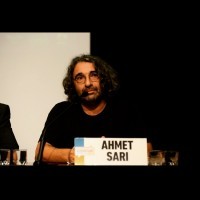
Ahmet Sarı, Atatürk Üniversitesi Alman Dili ve Edebiyatı Bölümünde Prof. Dr. olarak görev yapmaktadır. Sarı, Alman kültürü ve edebiyatı üzerine çalışmalar yapmaktadır.
Editörler
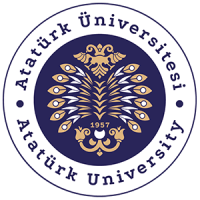

Habib Tekin 1989 yılında Almanya’nın Mainz şehrinde doğmuş, eğitim hayatının büyük kısmını yurtdışında geçirmiştir. 2009 yılında Almanya’nın Frankfurt şehrinde bulunan Max-Beckmann-Lisesi’nden mezun olmuştur. Aynı yıl Mannheim ve Ruprecht-Karls-Üniversitesi Heidelberg’de Çift Anadal Lisans ve Yüksek Lisans ortak programına kayıt olan Tekin, bu kapsamda Alman ve İngiliz Filolojisi derslerini almış, pedagojik formasyon’unu Pädagogische Hochschule Heidelberg Üniversitesi’nde tamamlamış ve Mart 2016 tarihinde Alman Federal Devleti’nin düzenlemiş olduğu devlet sınavını başarıyla tamamladıktan sonra Karlsruhe Eyaleti Öğretmenler Sınav Başkanlığı tarafından Almanca ve İngilizce Öğretmenliği bölümlerinden mezun olmuştur.
2010 yılında İngilizce dil bilgisini geliştirmek için İngiltere’nin Brighton ve Londra illerinde bulunmuştur. 2004 yılından 2009 yılına kadar devlet destekli bursu, 2009 yılından 2016 yılına kadar Federal Alman Devleti bursu almıştır. 2020 yılından itibaren ise Mannheim Üniversitesi üzere Alman Akademik Değişim Programı'ndan (DAAD) doktora tezi için burs almıştır. 2018-2021 yılları arasında Marmara Üniversitesi, Bilimsel Araştırmalar Projesi Birimi tarafından doktora tezini destekleyen proje kapsamında çalışmıştır.
2017 yılında Marmara Üniversitesi, Sosyal Bilimler Enstitüsü’nde Doktora programında kayıt olmuştur. Alman Dili ve Edebiyatı Anabilim Dalı’nda Yahudi yazar "Jakob Wassermann’ın Eserlerinde Yahudi Düşmanlığı İmgeleri" konulu tez çalışmasını Nisan 2021 tarihinde savunmuştur. Marmara Üniversitesi, Fen-Edebiyat Fakültesi, Alman Dili ve Edebiyatı Bölümü’nde Doçent olarak çalışmaktadır. İleri derecede Almanca ve İngilizce, orta derecede Fransızca ve Latince bilmektedir.
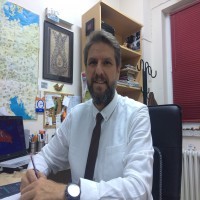
Editörler Kurulu
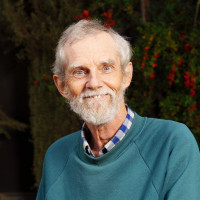
ALBRECHT CLASSEN was born near Bad Hersfeld in Germany and studied at the universities of Marburg, Erlangen, Millersville (PA), Oxford (Great Britain), Salamanca (Spain), and Urbino (Italy). He received his Ph.D. from the University of Virginia in 1986. He has a broad range of research interests covering the history of German literature from about 800 to 1600. His publications include currently 135 books and more than 840 articles, beginning with a study on Oswald von Wolkenstein and his Italian sources (1987), a post-structuralist interpretation of Wolfram von Eschenbach's Titurel (1990), a comparative analysis of 15th-century autobiographical European poetry (1991), a monograph on the German Volksbuch (1995), a critical investigation of late- medieval songbooks (2001), and an extensive investigation of the communicative community as portrayed in Middle High German literature (Verzweiflung und Hoffnung, 2002). Since then, he has published scores of new monographs and edited volumes, most recently on The Forest in Medieval German Literature (2015), Reading Medieval European Women Writers (2016), Water in Medieval Literature (2018), Toleration and Tolerance in Medieval and Early Modern European Literature (2018), The Relevance of The Humanities in the Twenty-First Century (2020), Prostitution in Medieval and Early Modern Literature (2021), Charlemagne in Medieval German and Dutch Literature (2021), Tracing the Trails in the Medieval World (2021), Wisdom from the European Middle Ages (2022), The Secret in Medieval Literature (2022), Globalism in the Middle Ages and the Early Modern Age (ed., 2023), and Der Niederrheinische Orientbericht, vol. 1350 (trans., 2024). A new book on court criticism and of evil kings in medieval literature appeared in 2024. Although a philologist/medievalist, he is also fascinated by modern and medieval literary theory and applies comparative and gender-oriented interpretations. As a result of his passion for teaching, he has won a number of prestigious teaching awards. He has given well over 1090 scholarly presentations all over the world (including many keynotes) and ca. 400 lectures to libraries, cultural organizations, High Schools, University classes, and social groups both all over Arizona and across the nation. In 2017, he received the rank of Grand Knight Commander of the Most Noble Order of the Three Lions. For further information, see https://sites.arizona.edu/aclassen/.
.
2006 Promotion an der Humboldt-Universität zu Berlin, seit 2007 Germanistikdozentin an der Universität von La Réunion, 2018 Habilitation an der Sorbonne Nouvelle.
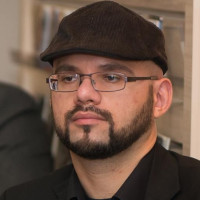
Levan studied German Philology at Ivane Javakhishvili State University of Tbilisi (TSU, 1998-2004) as well as Comparative Literature and Scandinavian Studies at the Universities of Hamburg (2001), Vienna (2002, 2009) and Stockholm (2005). In 2006-2009, he worked as Assistant Professor and manager of studies at the Faculty of Humanities of TSU before he moved to Ilia State University (ISU). He did his PhD about Arno Schmidt’s Late Prose as Metafiction (2008). In 2010-2011 he was dean of College of Arts and Sciences at ISU. He made short-term research visits at the Universities of Saarbrücken (2008) and Düsseldorf (2010, 2013, 2014, 2016, 2019), Humboldt University in Berlin (2014, 2017), University of Vienna (2009, 2015, 2021) and University of Freiburg (2016). He was a visiting lecturer at Friedrich Schiller University in Jena, Humboldt University in Berlin and University of Uppsala.
Levan has been in charge of collaboration with Robert Bosch Foundation and the Catholic Academic Exchange Service (KAAD). Within the scope of Go East program of German Academic Exchange Service (DAAD) he organized the annual summer school Fascination Caucasus for German students (2013-2014). In 2023-2025, he carried out research project Trauma und Erinnerung in der deutschen und georgischen Literatur des Postkommunismus, funded by the Alexander von Humboldt Foundation. In various years he was a jury member of ISU Award for Literature (The Best Novel of the Year, The Best Literary Translation of the Year) and Annual Literary Award “Litera”. He regularly facilitates the Student’s Book Club meetings at ISU.
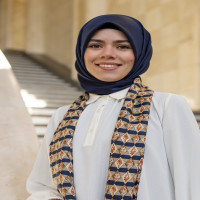
Eric Grube is a Visiting Assistant Professor in the History Department at Boston College, where he received his PhD in 2022. His research focuses on central Europe during the World Wars, in particular borderlands, rival fascisms, paramilitary violence, and the intersections of regionalism and German nationalism. He has conducted archival research throughout Germany and Austria, and he also received funding from the DAAD to teach for a year in Bavaria at the Katholische Universität Eichstätt-Ingolstadt. In 2023, he received a Travel and Research Grant from the Central European History Society to conduct additional archival visits to Munich, Linz, and Vienna. He hopes to use this archival research to convert his dissertation into a book manuscript for publication with an academic press.
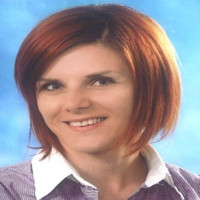
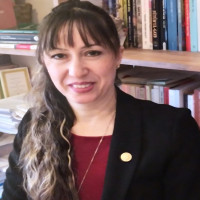
İstanbul doğumlu olan Funda Kızıler, ilk, orta ve lise öğrenimlerini İstanbul’da tamamladı. Atatürk Üniversitesi Alman Dili ve Edebiyatı Bölümü’ndeki lisans öğrenimini 1996’da bölüm birincisi olarak bitiren Kızıler, 1997 yılında aynı üniversitede Araştırma Gör. olarak çalışmaya başladı. “Hermann Hesse’nin Boncuk Oyunu Adlı Yapıtında Ütopik Us Dünyası” (1998) başlıklı çalışmasıyla yüksek lisans, “Patrick Süskind’in Parfüm Adlı Romanında Modernist ve Postmodernist Açılımlar” (2003) başlıklı çalışmasıyla doktora öğrenimini tamamladı. Sakarya Üniversitesi Alman Dili ve Edebiyatı Bölümü’nde Profesör Dr. olarak görev yapmaktadır.
Dil Editörleri
Kubilay Geçikli, Atatürk Üniversitesi İngiliz Dili ve Edebiyatı Bölümünde Prof. Dr. olarak görev yapmaktadır. Geçikli, İngiliz ve İrlanda Dili, Edebiyatı ve Kültürü üzerine çalışmalar yapmaktadır.


Content of this journal is licensed under a Creative Commons Attribution-NonCommercial (CC BY-NC) 4.0 International License



